Are you looking for a small, elegant, and charming furry companion? Look no further than the Maltese dog. This delightful Maltese puppy captures hearts with its adorable looks and affectionate nature. One glance at their long, silky white coat is enough to make anyone fall in love with this characteristic spaniel breed. Whether you’re a seasoned dog lover or new to pet ownership, the Maltese breed from Malta is worth considering.
The Maltese, also known as the Malta dog or the Maltese spaniel, is a beloved choice among many dog enthusiasts. Its unique fur sets it apart from other breeds, making it an eye-catching addition to any family. If you’re researching different dog species or seeking information about this particular kind of canine companion, such as the lion dog, we’re here to help.
We’ve got you covered, from hybrid options like the Papitese and Tese to understanding potential health issues that can arise in these toy breeds. So let’s dive into everything there is to know about the beautiful world of Maltese dogs, a popular choice for pet owners looking for a small spaniel puppy.
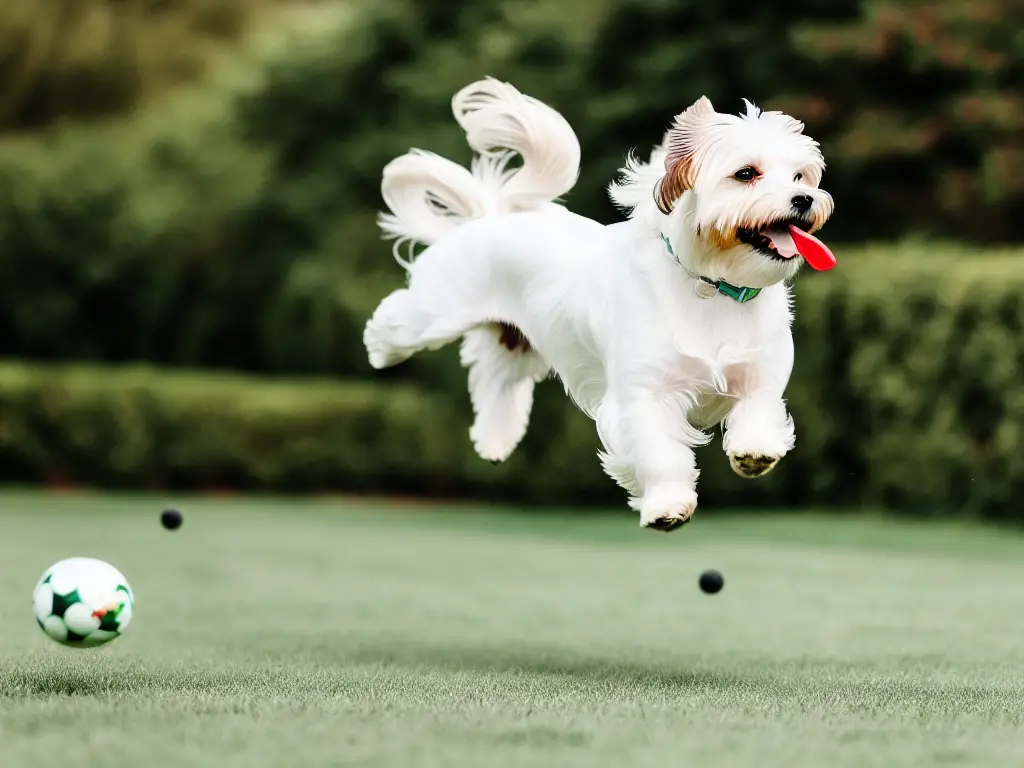
Table of Contents
- 1 History and Ancient Origins of the Maltese Breed:
- 2 Physical Characteristics and Unique Features of Maltese Dogs:
- 3 Temperament and Personality Traits of Maltese Dogs:
- 4 Care and Training Tips for Maltese Dogs
- 5 Common Health Issues and Nutrition for Maltese Dogs:
- 6 The Delightful World of Maltese Dogs:
- 7 Related posts:
- 8 Maltese Puppy Care: The Ultimate Guide
- 9 Discover Maltese Dog Temperament
History and Ancient Origins of the Maltese Breed:
The Maltese dog, one of the characteristic dogs from Malta, is a beloved companion today. With a fascinating history that dates back centuries, this breed traces its roots in ancient civilizations like Egypt and Greece. Known for their small size, the Maltese is a toy breed that has stood the test of time.
Believed to be descendants of ancient Roman lapdogs, the Maltese breeds were cherished by pet owners and aristocracy throughout history. Revered as a symbol of wealth and luxury, the Maltese puppies were often found in the company of kings and queens.
The origins of this old doggie breed can be traced back to at least the 15th century. Records show that characteristic dogs were already well-established in Europe during this time. Their popularity continued to grow over the centuries, with notable figures such as Queen Victoria being avid puppy admirers. Pet owners also appreciate this breed’s long history and unique traits.
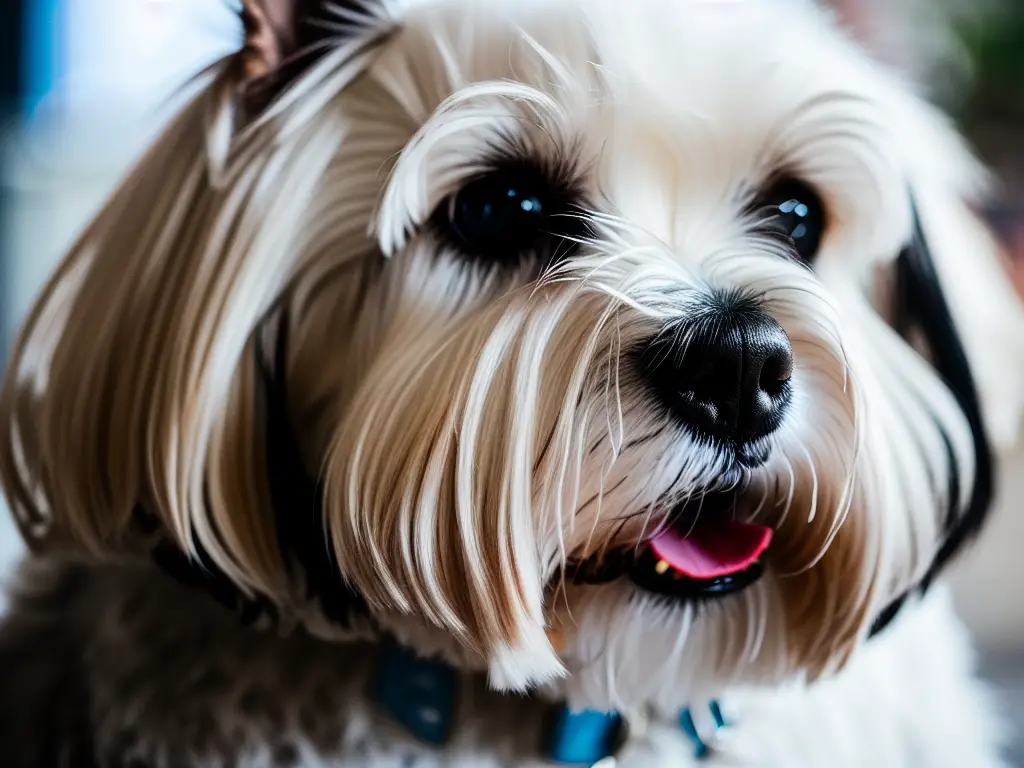
Throughout their long history, Maltese dogs have remained relatively unchanged regarding their appearance and temperament. These Maltese puppy breeds continue to captivate hearts with their small size, silky white coats, and playful personalities.
Physical Characteristics and Unique Features of Maltese Dogs:
The Maltese dog is known for its distinctive physical characteristics and unique features. Here are some key points to know about this puppy breed.
- Maltese dogs have compact bodies with slightly rounded skulls, contributing to their adorable appearance.
- One defining characteristic of Maltese dogs is their dark, round eyes that exude warmth and intelligence. These expressive eyes showcase the brilliance of this puppy breed from Malta.
- A distinctive flowing white coat that requires regular grooming: The most notable characteristic of Maltese dogs, a popular breed for pet owners, is their silky white coats. This beautiful fur requires regular grooming to keep it looking pristine, especially for puppies of this hybrid breed.
- Maltese dogs’ black noses and skin are characteristic features of the breed. Their black nose contrasts beautifully against their white fur, enhancing their overall charm. Additionally, they have black skin underneath their coat. These characteristics make Maltese dogs adorable pets with unique teeth.
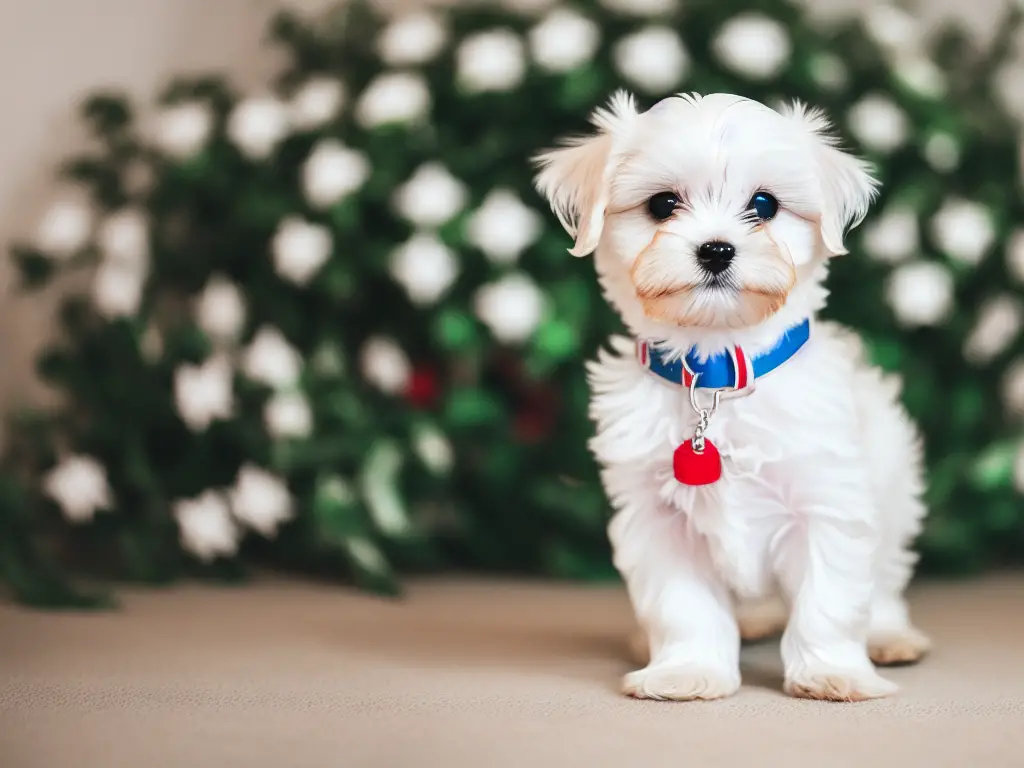
Maltese dogs have characteristic physical traits that make them easily recognizable among other breeds. From their compact body structure to their expressive eyes and flowing white coats, they possess an irresistible charm that captures the hearts of many people who love dogs.
Temperament and Personality Traits of Maltese Dogs:
Maltese dogs are popular breeds known for their lively and energetic characteristic. They are ideal companions for active people and families who seek affectionate pets. These adorable canines thrive on human interaction and provide companionship. For more information about Maltese dogs, read on.
Maltese dogs are known for their cautious nature when meeting new people. However, their friendly and warm-hearted characteristic shines through once they become familiar with someone. Their loyalty is unmatched, making them ideal for those seeking loyal companionship.
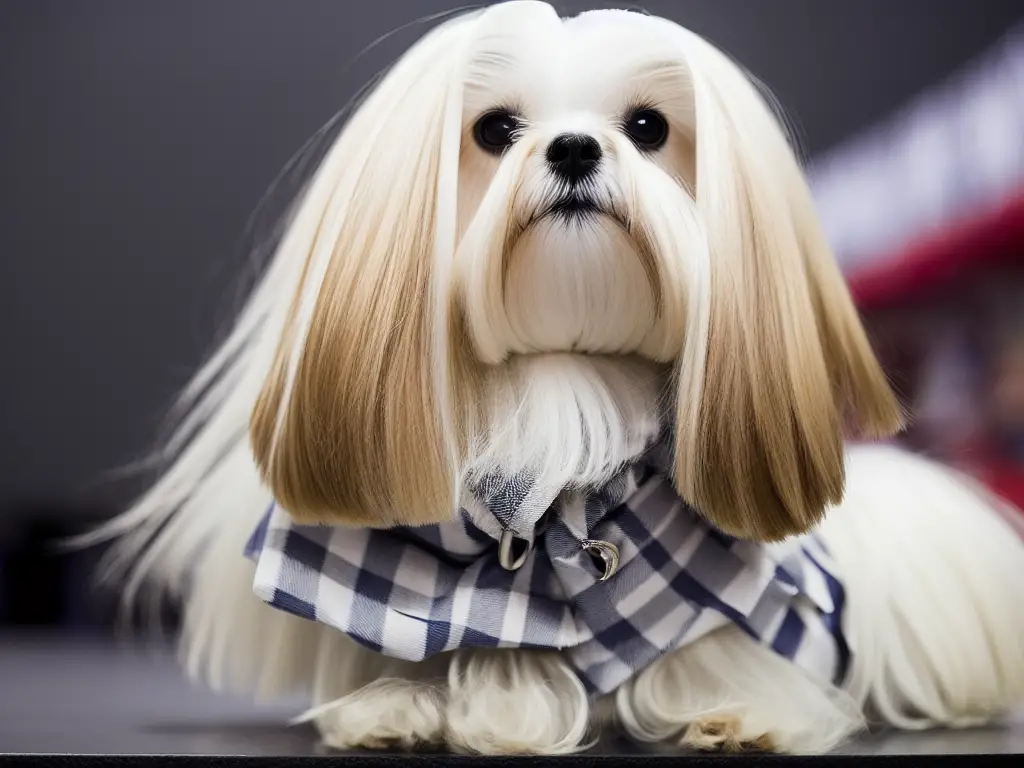
Here is some information about the characteristic breeds and teeth of Maltese dogs. They have distinct temperaments and personality traits.
- Maltese dogs are lively and playful breeds. They have abundant energy and need to stay active. They enjoy playing games like fetch or chasing toys around the house. If you’re considering getting a Maltese, knowing this characteristic information about their energy levels and exercise needs is essential.
- Affectionate companions, these dog breeds crave attention and love being in the company of their humans. They will happily snuggle up on your lap or follow you around the house. Whether you’re looking for a lion dog or are interested in dog sports, these furry friends will bring joy to your life. Don’t forget to provide the best dog food to keep them healthy and happy.
- Maltese dogs, known for their protective instincts, may initially be wary of strangers. This characteristic is a natural defense mechanism that can be overcome with time. If you need more information about Maltese breeds, their cautious behavior is something to keep in mind.
- Maltese dogs are friendly towards familiar people. Once a bond is formed, these breeds become incredibly loving and affectionate. They will greet family members with wagging tails and shower them with affection. In terms of characteristics, they are known for their friendly nature. For more information about Maltese dogs and their teeth, please continue reading.
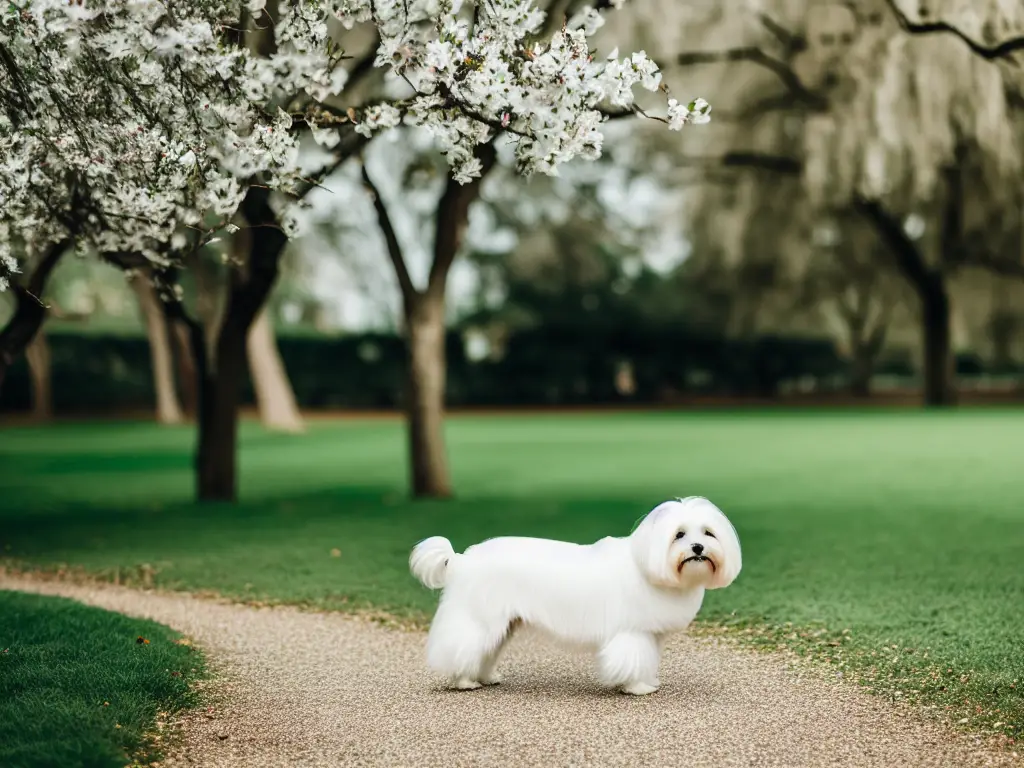
Care and Training Tips for Maltese Dogs
Regular brushing is essential to maintain the luxurious coat of the Maltese dog breed. The Maltese are known for their long, silky hair, and brushing their skin daily helps prevent tangles and matting, keeping their fur healthy and shiny. It is essential to have information about the characteristic grooming needs of different dog breeds.
Daily exercise is essential for Maltese dogs to keep them mentally stimulated and physically fit. These small breeds have a lot of energy to burn, so engaging them in activities like walks, playtime, or agility courses is essential to keep them active and prevent boredom. This information about their characteristic needs should be taken into account when caring for a Maltese dog.
Positive reinforcement training methods work best for Maltese dogs. These intelligent breeds respond well to rewards, treats, and praise, making positive feedback highly effective. They are eager to please their owners and are known for their characteristic eagerness to learn and please. For more information on training these intelligent breeds, continue reading.
In addition to regular exercise and obedience training, proper care involves being mindful of potential health issues. Regular check-ups with a veterinarian are crucial for maintaining your Maltese dog’s overall well-being. Some common health concerns for this breed include dental problems and respiratory issues due to their small size. It is essential to have accurate information about the characteristic species.
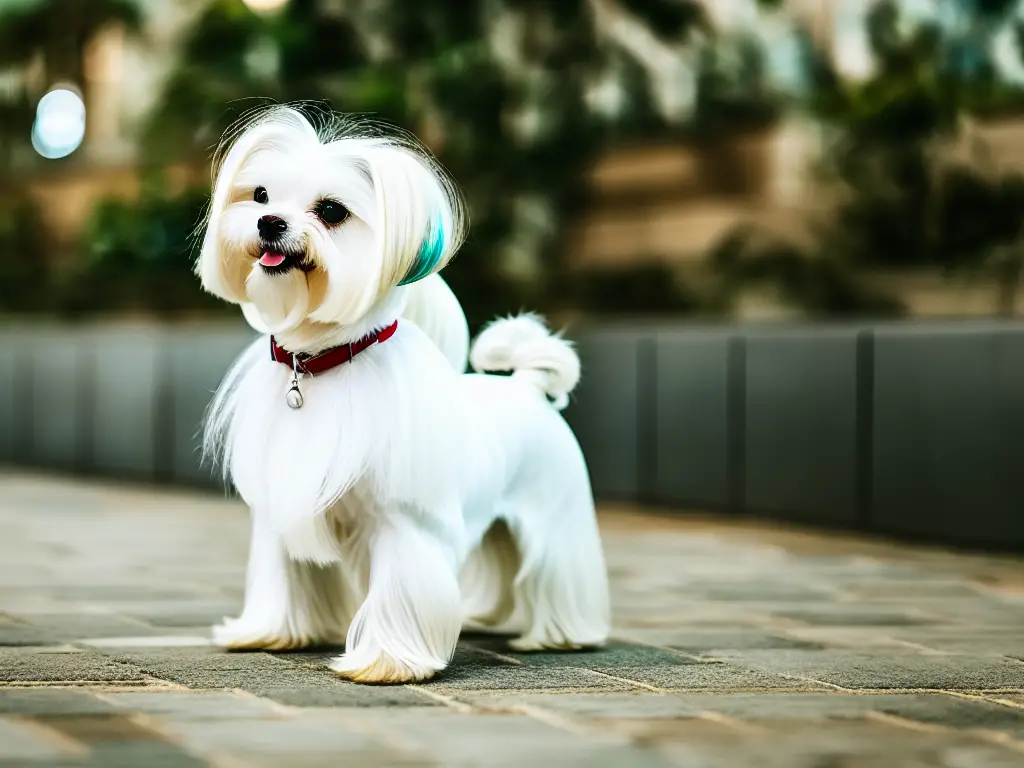
While surgery may sometimes be necessary for specific medical conditions or procedures such as spaying or neutering in certain dog breeds, it is essential to consult a trusted veterinarian before making any decisions. They will guide when surgery is needed and what precautions should be taken.
By following these care and training tips, you can ensure that your Maltese dog leads a happy and healthy life while enjoying the companionship of this adorable breed.
Common Health Issues and Nutrition for Maltese Dogs:
Maltese dogs are prone to several health issues that owners should be aware of. Here are some common health problems associated with Maltese dogs and the importance of proper nutrition in maintaining their overall health.
- Dental Problems: Maltese dogs are more susceptible to dental disease due to their tiny mouths. Regular brushing and dental cleanings can help prevent tooth decay and gum infections.
- Tear Stains: Many Maltese dogs develop tear stains around their eyes. This can be caused by excessive tearing or blocked tear ducts. Regular cleaning and grooming can help reduce tear stains.
- Diet: Providing a high-quality diet is crucial for the overall health of Maltese dogs. A balanced diet with proper portion control ensures they receive all the nutrients without overeating.
- Health Clearances: When getting a Maltese dog, it’s essential to ensure the breeder has conducted health clearances on the parents. This helps identify any genetic diseases or conditions that may affect the puppies.
- Pet Health Insurance: Considering pet health insurance for your Maltese dog can provide financial assistance in case of unexpected illnesses or injuries. It helps cover veterinary bills, medications, and treatments.
- Infections: Like any other breed, Maltese dogs are susceptible to ear infections or skin irritations. Regular check-ups with a veterinarian can help detect and treat these issues early on.

Taking care of a Maltese dog’s health involves addressing these common issues through regular grooming, dental care, nutritious meals, and preventative measures such as vaccinations and regular vet visits.
Remember, being proactive about your Maltese dog’s well-being will contribute to their happiness and longevity.
The Delightful World of Maltese Dogs:
In conclusion, the Maltese dog breed brings a delightful combination of history, unique physical characteristics, and endearing personality traits. With their ancient origins dating back centuries, these dogs have captured the hearts of many through their small size and silky white coats. Their friendly and affectionate nature makes them excellent companions for individuals and families.
It is essential to provide regular grooming to maintain their beautiful coat. Training should focus on positive reinforcement techniques to bring out their intelligence and eagerness to please. It is crucial to remember that these dogs thrive on human interaction and can become anxious if left alone for extended periods.
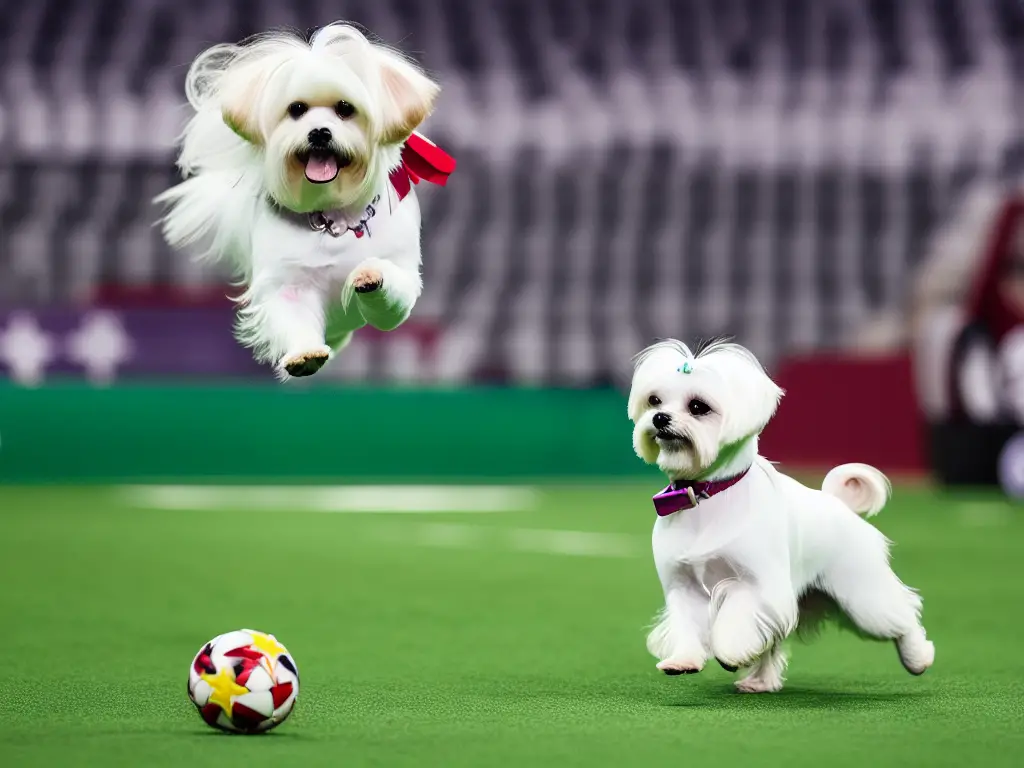
While generally healthy, Maltese dogs are prone to specific health issues such as dental problems and eye conditions. Regular veterinary check-ups are essential in ensuring their overall well-being. In terms of nutrition, a balanced diet consisting of high-quality dog food tailored to their specific needs is recommended.
If you’re considering adding a Maltese dog to your family, take some time to research reputable breeders or consider adoption from rescue organizations. These furry friends will bring joy and love into your home with their playful antics and unwavering loyalty.
FAQs
Are Maltese dogs good with children?
Maltese dogs are generally good with children as they are gentle and tolerant. However, supervision is always recommended when young children interact with any dog breed.
Do Maltese dogs shed a lot?
Maltese dogs have hair rather than fur, so they shed very little. However, regular grooming is necessary to prevent matting.
Can I leave my Maltese dog alone during the day?
While it’s not ideal for any dog breed to be left alone for long periods, including Maltese, they can adapt if given proper training and mental stimulation. It’s important to gradually increase their alone time and provide toys or puzzles to keep them occupied.
How often should I groom my Maltese dog?
Maltese dogs require regular grooming to maintain their coat’s health and appearance. Daily brushing and monthly bathing are recommended to prevent tangles and matting.
Are Maltese dogs easy to train?
Maltese dogs are intelligent and eager to please, making them relatively easy to train. However, consistency, positive reinforcement, and patience are critical to successful training.